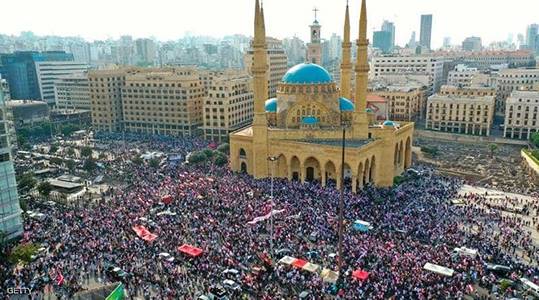The International Monetary Fund, in its new report on the global economic outlook, expects Lebanon's nominal GDP to reach $18.7 billion in 2020, down from $52.5 billion in 2019. When adjusted for GDP, the real GDP growth is -25.0% in 2020, compared to -6.9% in 2019.
According to the IMF, the severe economic crisis that has erupted since the last quarter of 2019, the state’s failure to pay its external debts in the first quarter of 2020, and the monetary deviation that led to the discrepancy between the official and parallel market prices, and the epidemic Covid-19 crisis that followed it, as well as the closure of the country for several weeks, and the devastating explosion in the Beirut port in the middle of the summer, all factors that affected economic activity and caused its stagnation.
The IMF expected inflation to reach 145% in 2020 (compared to 7.0% in 2019), which raises the average income to 85.5%. This increase in income comes as a result of the monetary deviation, and in the context of the significant difference recently observed between the black market rate and the official exchange rate at 1,507.5 Lebanese pounds. On the general level, the International Monetary Fund expects an increase in Lebanon's return to GDP from 10.5% in 2019 to 16.5% in 2020.
Source (Economic Bulletin Website, Edited)

